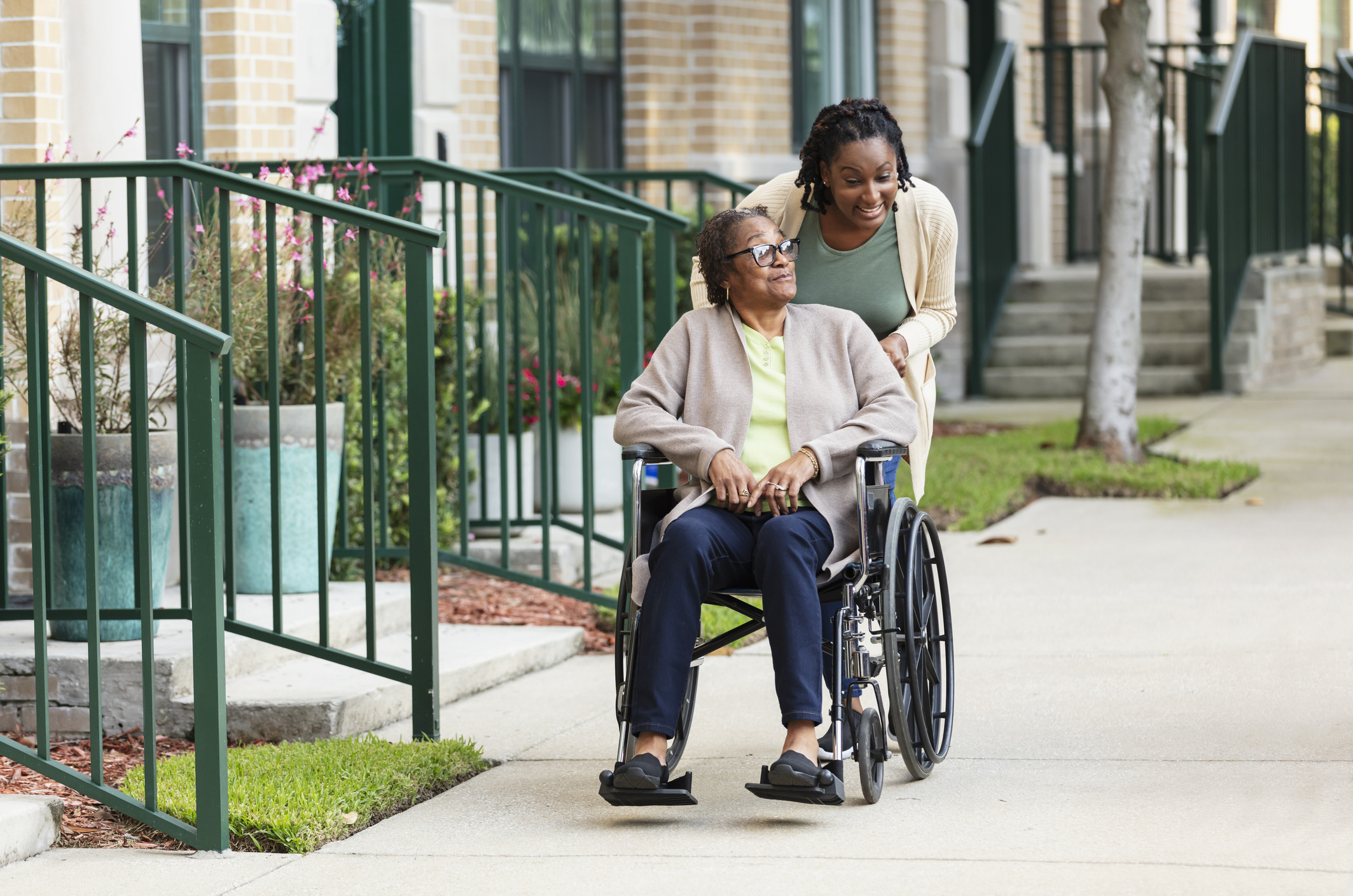Abortion rights, women of color, and LGBTQIA+ people are under attack. Pledge to join us in fighting for gender justice.
Caring for Loved Ones at Home Is Critical for Living with Dignity. So Why Is It So Hard to Access?

All our lives will be shaped by caregiving at one point or another. I know mine has.
While my mom has been a caregiver for others my whole life, both as a care worker and a parent, as we both get older, I worry about what I can do now to make sure she’ll receive the kind of dignified care she’s been providing to everyone else. And right now our nation doesn’t make finding dignified care easy.
For many older people and disabled children and adults, support for activities like cooking and preparing meals, taking medicine, and getting dressed and bathing is essential.
The ability to decide where to live and how to receive support is important to maintain agency over your life. And staying in long-term institutions does not work for all people. Receiving support in a familiar environment—in the homes they may have lived in for years, with the community members they know and love—can reduce stress and better support people’s autonomy. And receiving this support at home—whether from family members, friends and neighbors, paid care providers, or all of the above—is typically the preferred option for people who need it.
But for many people, the home- and community-based services they need to say in their homes and communities is out of reach—even while millions of care providers struggle to make ends meet with low pay, minimal benefits, and frequently part-time and unstable work hours.
Receiving care at home can be critical for aging and disabled people to live with dignity, yet many people who need this care face barriers to accessing it—especially if they are also women, LGBTQIA+, or people of color. Disabled people and older adults who live at the intersection of other marginalized identities also face the brunt of the consequences from a lack of good care.
Without Medicaid or other assistance, in-home health care costs a nationwide average of over $6,000 per month, more than what most people can afford—especially disabled women and women of color, who already face intersecting barriers to economic security and an elevated risk of poverty.
Current public funding does not adequately support individuals’ desire to receive care in their homes. Most health insurance plans do not cover long-term home-based care. And while Medicare can provide coverage for home health services, it is very difficult to obtain—especially on a long-term basis. Medicaid provides the majority (69%) of funding for HCBS, but many states provide very limited coverage for a small group of people, and Medicaid enrollees seeking care must navigate a complex process. As a result, the system often funnels people into nursing homes and other institutional settings; others might remain at home but rely heavily on support from an unpaid family caregiver.
Family members and friends often provide care for loved ones who need home-based care. But due to inadequate public investment and support, this care work is often unsustainable for family caregivers.
Not only do many family caregivers go unpaid, but almost 80% of those caregivers are paying out of pocket for caregiving expenses. Annually, family caregivers spend an average of $7,242 out of pocket a year on expenses like payments to medical providers, rent or mortgage payments for care recipients, and prescriptions.
Too often, family caregivers are left isolated, financially insecure, and ultimately less physically and mentally able to provide the attentive care they want to give. These harmful impacts are especially felt by women, who are most likely to take on (often multiple) family caregiving responsibilities, and by women of color who are already more likely to be pushed into low-paid jobs and struggle to make ends meet. Family caregivers often want and need professional help, such as direct care workers like my mom, to navigate their family member’s medical needs with greater ease, but often cannot access the support they need from the incredibly strained direct care workforce.
Our country requires people to make unconscionable sacrifices to our health as disabled and aging people, our stability as family caregivers, and our security as care workers—even though care represents the best of our shared humanity. Our new report demonstrates just how critical supporting home- and community-based care is to advancing gender justice.
Collectively, we can push our policymakers to ensure that disabled people can access affordable care that enables them to fully participate in their communities, that family caregivers are financially and emotionally supported in caregiving for their loved ones, and that direct care jobs are good, well-compensated roles that enable women of color to thrive—so that we all can care and be cared for.




